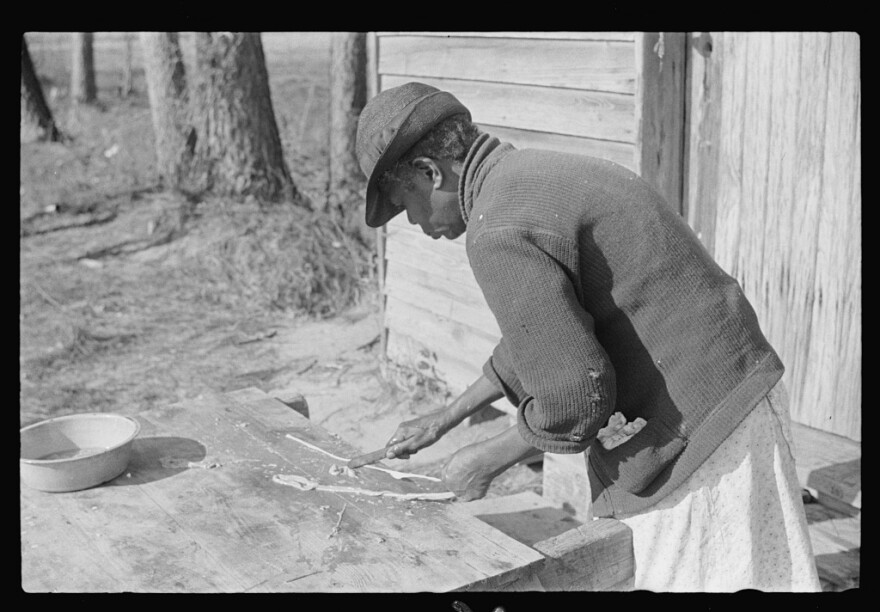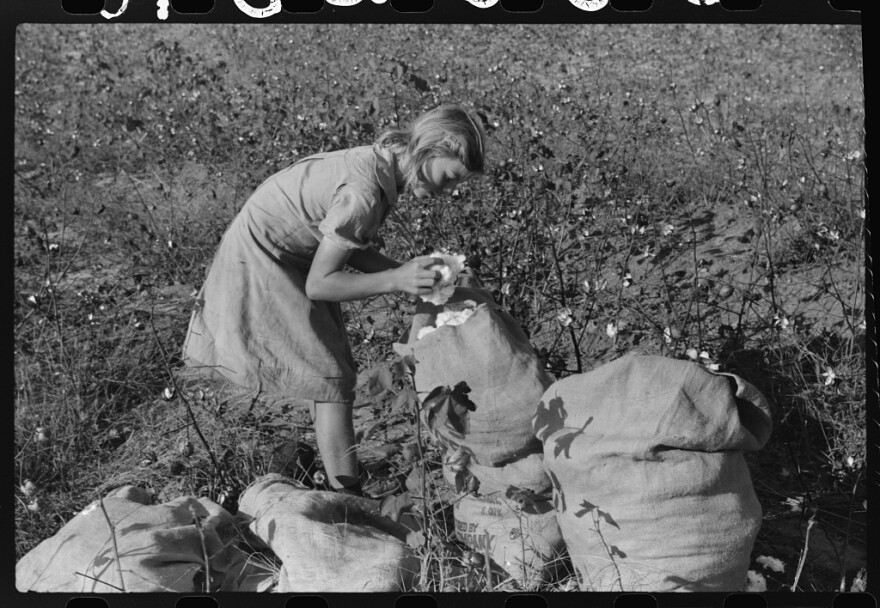During the Great Depression, the federal government sent photographers around the country to meet Americans and document their lives. Those photographers took some 170,000 photographs throughout the latter half of the 1930s and into the 194os. The images they captured are among the most iconic of the era.
There's a new way to browse the images by state and even by county. The site is called Photogrammer and it was created by a team at Yale University.
In North Carolina, photographers captured migrants passing through the state, sharecroppers harvesting cotton, workers in the tobacco warehouses and more. Take a look:

Credit Dorothea Lange / Library of Congress Call Number LC-USF34-009337
/
Library of Congress Call Number LC-USF34-009337

Credit Jack Delano / Library of Congress Call Number LC-USF34-043350
/
Library of Congress Call Number LC-USF34-043350

Credit Marion Post Wolcott / Library of Congress Call Number LC-USF33-030387
/
Library of Congress Call Number LC-USF33-030387

Credit Marion Post Wolcott / Library of Congress Call Number LC-USF34-050656
/
Library of Congress Call Number LC-USF34-050656

Credit Walker Evans / Library of Congress Call Number LC-USF33-009084
/
Library of Congress Call Number LC-USF33-009084

Credit Marion Post Wolcott / Library of Congress Call Number LC-USF33-009084
/
Library of Congress Call Number LC-USF33-009084

Credit Jack Delano / Library of Congress Call Number LC-USF33-020566
/
Library of Congress Call Number LC-USF33-020566

Credit Jack Delano / Library of Congress Call Number LC-USF34-040841
/
Library of Congress Call Number LC-USF34-040841
H/t to KPLU's Quirksee.










